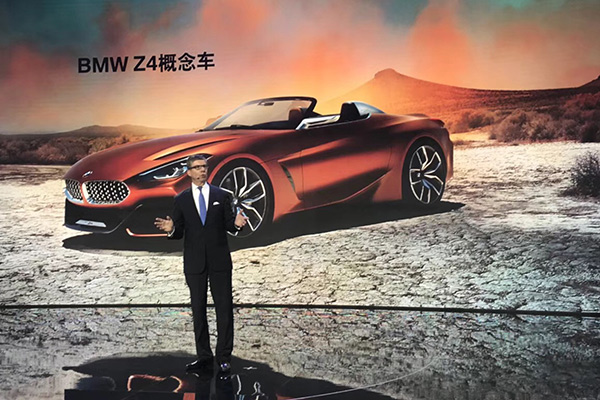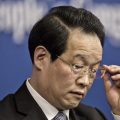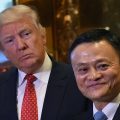
Leading high-end brands achieved their best performance yet in the Chinese market last month, soaring beyond the targets they set at the beginning of this year, despite the overall slowing growth of the passenger car segment.
BMW Group beat an internal sales record this year in China, after achieving a solid 15.1 percent growth rate in the first 10 months, with 487,069 BMW and Mini cars delivered.
“Our product offensive will secure sustainable growth, which is the basis of long-term success,” Olaf Kastner, president & CEO of BMW Group Region China, said at the 2017 Guangzhou auto show news conference on Friday.
“We are confident about the future automobile business in China and will continue our successful development in the years to come.”
Mercedes-Benz also reached new highs in China both in the month of October and in the first ten months of the year. The brand’s sales rose with a double-digit growth rate to 46,016 vehicles last month. Since the beginning of the year, sales in China increased by 27.8 percent to 488,915 vehicles.
“About 71 percent of the delivered Mercedes-Benz were China-made products,” local media cited Duan Jianjun, executive vice-president for sales and marketing of Beijing Mercedes-Benz Sales Service Co Ltd, as saying on Friday in Guangzhou.
Audi has achieved its highest growth rate to date this year, with sales up 14.5 percent in China. With 53,828 automobiles sold, this year saw the best October sales month in Audi history. Since January, the automaker sold 472,498 cars in China.
Jaguar Land Rover’s China sales soared almost 28 percent to 488,915 vehicles in the first ten months, more than its total sales in 2016. A total of 12,321 Jaguars and Land Rovers were sold in the country last month, up 12 percent year-on-year.
An optimistic outlook for the world’s largest market is shared among the premium automakers, and they pin their hopes on the continued fast expansion of the Chinese luxury segment for next year’s growth.
Jaguar Land Rover, Volvo and BMW in particular share a similar optimistic vision for China’s luxury car market development in the future, expecting their big year in 2018.
Frank Wittemann, president of Jaguar Land Rover Integrated Marketing Sales and Service told China Daily: “The growth in the premium market is fast, and the annual growth rate could be 10 percent this year. Given a 5 to 6 percent growth rate year-on-year is healthy, we are not worried about development.
“Competition is fierce in the Chinese market. We need to be stronger and stronger, and compete in the right way. We will grow in a sustainable, qualitative way, rather than competing in a price war.”
Chinese customers are showing their preference more and more for premium brands with a unique character and products with personality, Yuan Xiaolin, senior vice-president of Volvo Car Group, said in an interview with China Daily.
“The performance in China is beyond the group’s earlier expectation. We are progressing in line with the market trend,” Yuan said.
From January to October, the Chinese-owned Swedish brand’s sales were equivalent to those in the whole of 2016, with its sales volume growth reaching 30 percent year-on-year. Huge market potential exists for the future Chinese automobile industry, as the luxury segment contributes a relatively small portion of the world’s largest market, according to Duan at Beijing Mercedes-Benz Sales Service.
Duan said: “The deliveries of luxury automobiles contributed less than 10 percent to the overall Chinese market. Compared with the premium segment’s 15 to 30 percent market share in mature markets, there will be great room for development.”


